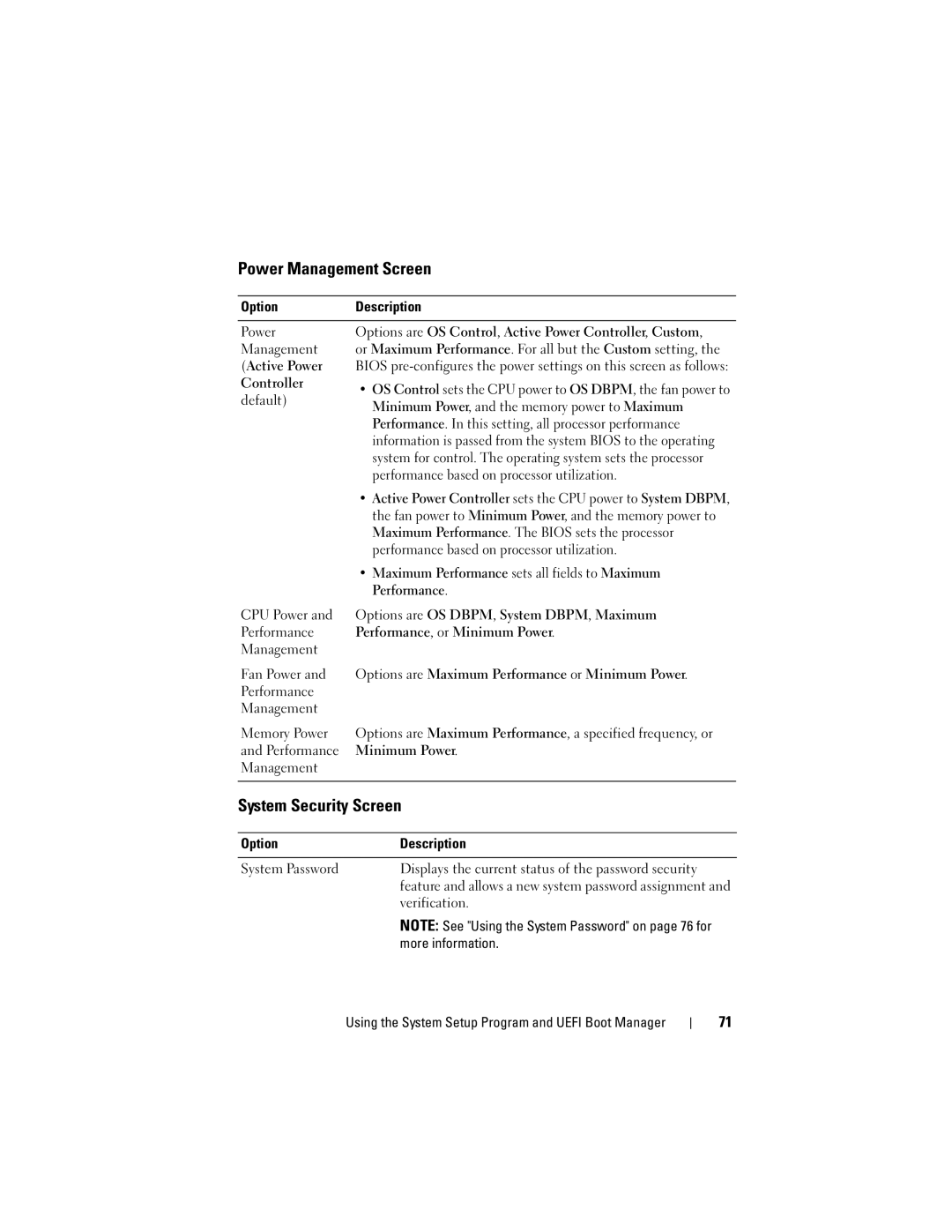
Power Management Screen
Option | Description | |
|
| |
Power | Options are OS Control, Active Power Controller, Custom, | |
Management | or Maximum Performance. For all but the Custom setting, the | |
(Active Power | BIOS | |
Controller | • OS Control sets the CPU power to OS DBPM, the fan power to | |
default) | ||
Minimum Power, and the memory power to Maximum | ||
| ||
| Performance. In this setting, all processor performance | |
| information is passed from the system BIOS to the operating | |
| system for control. The operating system sets the processor | |
| performance based on processor utilization. |
•Active Power Controller sets the CPU power to System DBPM, the fan power to Minimum Power, and the memory power to Maximum Performance. The BIOS sets the processor performance based on processor utilization.
•Maximum Performance sets all fields to Maximum Performance.
CPU Power and | Options are OS DBPM, System DBPM, Maximum |
Performance | Performance, or Minimum Power. |
Management |
|
Fan Power and | Options are Maximum Performance or Minimum Power. |
Performance |
|
Management |
|
Memory Power | Options are Maximum Performance, a specified frequency, or |
and Performance | Minimum Power. |
Management |
|
|
|
System Security Screen
Option | Description |
|
|
System Password | Displays the current status of the password security |
| feature and allows a new system password assignment and |
| verification. |
| NOTE: See "Using the System Password" on page 76 for |
| more information. |
Using the System Setup Program and UEFI Boot Manager
71
